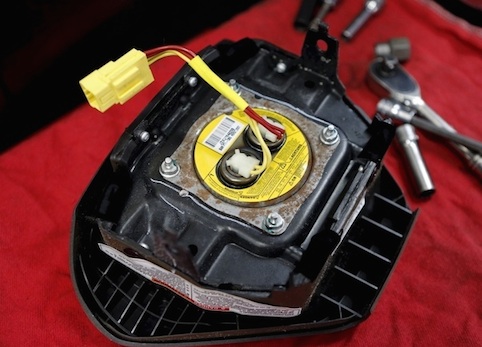-
Tips for becoming a good boxer - November 6, 2020
-
7 expert tips for making your hens night a memorable one - November 6, 2020
-
5 reasons to host your Christmas party on a cruise boat - November 6, 2020
-
What to do when you’re charged with a crime - November 6, 2020
-
Should you get one or multiple dogs? Here’s all you need to know - November 3, 2020
-
A Guide: How to Build Your Very Own Magic Mirror - February 14, 2019
-
Our Top Inspirational Baseball Stars - November 24, 2018
-
Five Tech Tools That Will Help You Turn Your Blog into a Business - November 24, 2018
-
How to Indulge on Vacation without Expanding Your Waist - November 9, 2018
-
5 Strategies for Businesses to Appeal to Today’s Increasingly Mobile-Crazed Customers - November 9, 2018
Takata Airbag Recall Expands to Add Another 35-40 Million Airbags
This will add to Takata’s woes, where almost 29 million inflators have already been recalled previously in the US.
Advertisement
The latest death confirmed to be linked to Takata was in Texas, where a 17-year-old girl was killed after being in a relatively minor crash in her family’s 2002 Honda Civic.
“This is the largest recall in American history”, National Highway Traffic Safety Administration Administrator Mark Rosekind told reporters Wednesday afternoon.
More than 8 million inflators have been replaced so far, but that’s fewer than 12 percent of the total number of vehicles involved.
The bags – manufactured by Japan-based Takata Corp. and installed in more than a dozen auto brands, including Honda, Nissan, GM, Chrysler, Ford, Toyota and Volkswagen – are prone to rupture, spewing metal shrapnel from the inflator into the cab.
Since the Takata Corporation is one of the largest auto safety parts suppliers in the world, virtually all major vehicle makers are affected by its recall. All vehicles in which field or testing ruptures have occurred are already subject to previous recalls in the U.S.
The agency also fined Takata $70 million for delays in reporting the problem, with a provision for an additional $130 million in fines if it fails to comply fully with the deal.
“This agreement with NHTSA is consistent with our desire to work with regulators and our automaker customers to develop long-term, orderly solutions”, CEO Shigehisa Takada said. Pairing ammonium-nitrate propellant with a desiccant appears to help minimize the danger.
Now, we’re learning that even without manufacturing defects, the propellant degrades over time, especially in warm, humid weather.
Mazda said that it is “currently investigating” which of its vehicles may be affected by the expanded recall, but noted that none of its 2016 models contain Takata driver or passenger front airbag inflators.
Potential rescuers include Japanese automakers, which have become increasingly dependent on Takata’s air bags, seat belts and other parts over the years. The panel recommended automating the process.
“Takata has been in close consultation with NHTSA regarding the severe challenges it will face in supplying replacement parts for the expanded recalls”, the company said in a statement.
Rosekind credited Takata for the new approach, saying it “may be turning the corner toward a stronger” safety culture.
The already massive Takata airbag recall is more than doubling in size.
NHTSA says it can take between 6 and 25 years for the changes in chemistry to take place, but the inflators do not pose an “unreasonable risk to safety” until they reach “a certain level of propellant degradation”.
The recall applies to frontal air bags, on the driver or passenger sides in vehicles made by 14 different manufacturers. Owners will be notified when there is a remedy available and should get the fix immediately.
Advertisement
Exposure to humidity and changes in high temperatures alter the chemical compound, at least in airbags that don’t have a drying agent called a desiccant, a separate chemical used to absorb moisture. The government also maintains a tool at Safercar.gov where owners can look up open recalls by their car’s vehicle identification number.





























